April 01, 2024
Message from Graduates
LI ENHAO, School of Physical Sciences, Department of Fusion Science
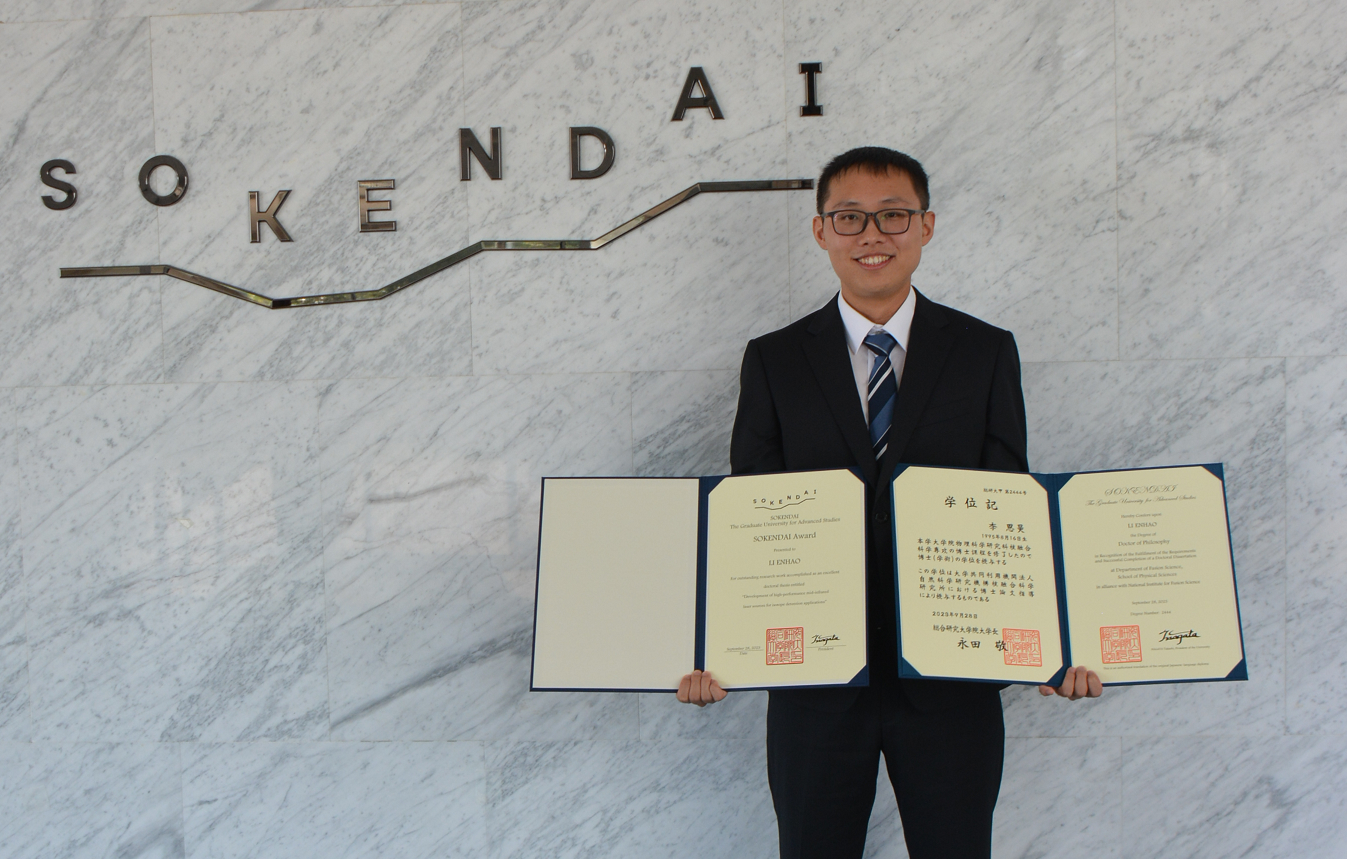
I enrolled in the Department of Fusion Science at SOKENDAI in 2020. Researching at the National Institute for Fusion Science (NIFS) is truly a unique experience. As we know, nuclear fusion is a vast project encompassing various fields such as plasma physics, fluid mechanics, thermodynamics, condensed matter physics, optics, electrical engineering, and even information technology. My research focused on optical technology, specifically the development of novel laser sources for advanced plasma diagnostic technology. Engaging in research at NIFS, with its large scientific facilities, can cultivate our ability to conduct interdisciplinary research. We have numerous opportunities to integrate our research with practical applications and actively collaborate with researchers from various fields. I encourage prospective students to consider joining NIFS to be part of this dynamic scientific research environment.
School of Physical Sciences, Department of Fusion Science
Graduate of September 2023
National Institute for Fusion Science
Winner of The 11th SOKENDAI Award
HARSHA SOMASHEKAR, School of Life Science, Department of Genetics
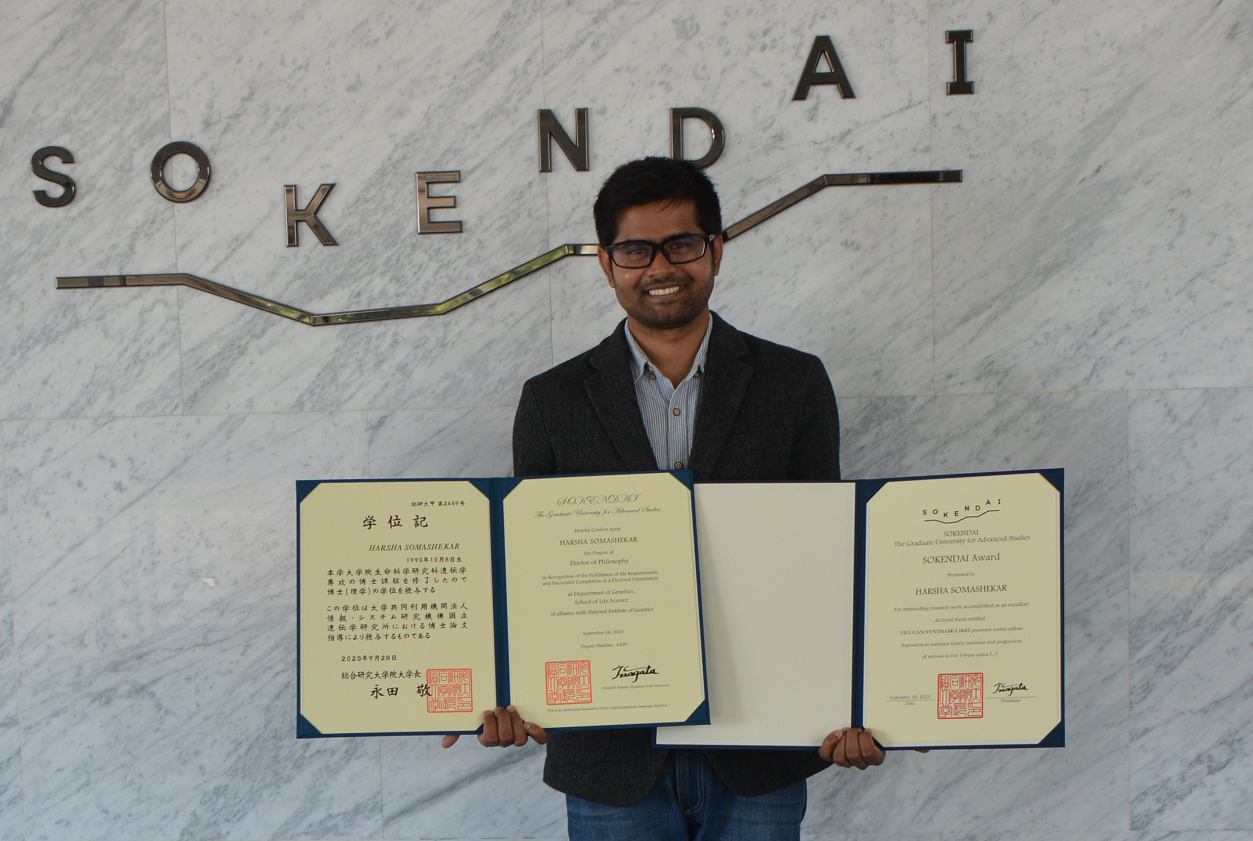
When I embarked on my journey at SOKENDAI in 2018, it was a dream of mine to become an independent researcher, to contribute to the world of knowledge, and to tackle real-world problems. Today, five years later, I can proudly say that my dream has come true. This achievement has been made possible through the unwavering support and guidance of SOKENDAI and my parent institute NIG. SOKENDAI is truly an exceptional institution. It not only imparts knowledge but also nurtures its students with unique perspective on addressing the challenges of the real world. The important thing I learnt here is “how to create a new knowledge”. I have also come to realize how this newly established knowledge can transform our society for the better. I want to express my heartfelt gratitude to SOKENDAI for providing me with this remarkable opportunity. I also want to acknowledge the incredibly talented faculty members who have been my mentors and guides throughout my doctoral journey. Their continuous support and mentorship have been instrumental in my growth as a researcher. With the SOKENDAI Award and the Morishima Award for the best doctoral research now in my hands, I feel a heightened sense of responsibility towards society. I am committed to continuing my efforts to create new knowledge that can contribute to the betterment of society. To aspiring students and researchers, I wholeheartedly recommend SOKENDAI as a destination for higher studies and advanced research. It is an institution that not only equips you with knowledge but also nurtures your passion for discovery and innovation.
School of Life Science, Department of Genetics
Graduate of September 2023
National Institute of Genetics
Winner of the 11th SOKENDAI Award
OZAKI Ryoto, School of Multidisciplinary Sciences, Department of Statistical Science
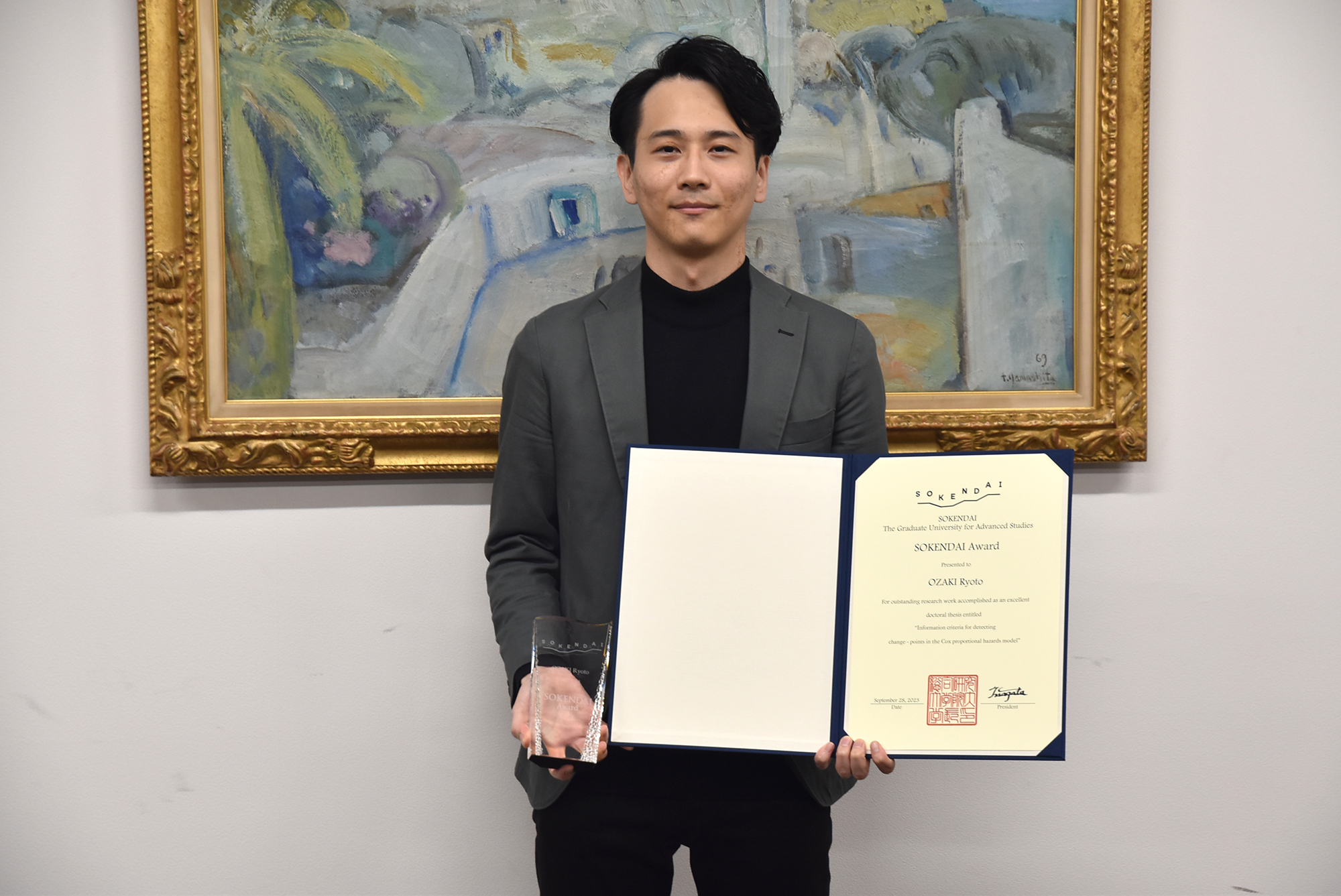
I am deeply honored to receive the prestigious SOKENDAI Award. I would like to express my sincere gratitude for the supervision and support of my supervisors and all the Institute of Statistical Mathematics members. The Statistical Science Program offers a course dedicated to researching theories and application methods for data-based reasoning, under the supervision of a diverse faculty. Within this program, students benefit from comprehensive mentorship in research meetings, gaining exposure to cutting-edge research. Furthermore, this program provides substantial support for working students like myself. I greatly appreciate that these enabled me to conduct research in a highly enriching environment, even during the pandemic-affected period of my studies. My forthcoming goal is to leverage this experience as a bridge between academia and industry, thereby contributing to the further advancement of my industry field.
School of Multidisciplinary Sciences, Department of Statistical Science
Graduate of September 2023
The Institute of Statistical Mathematics
Winner of the 11th SOKENDAI Award
YU Xuejian , School of Cultural and Social Studies, Department of Japanese Studies
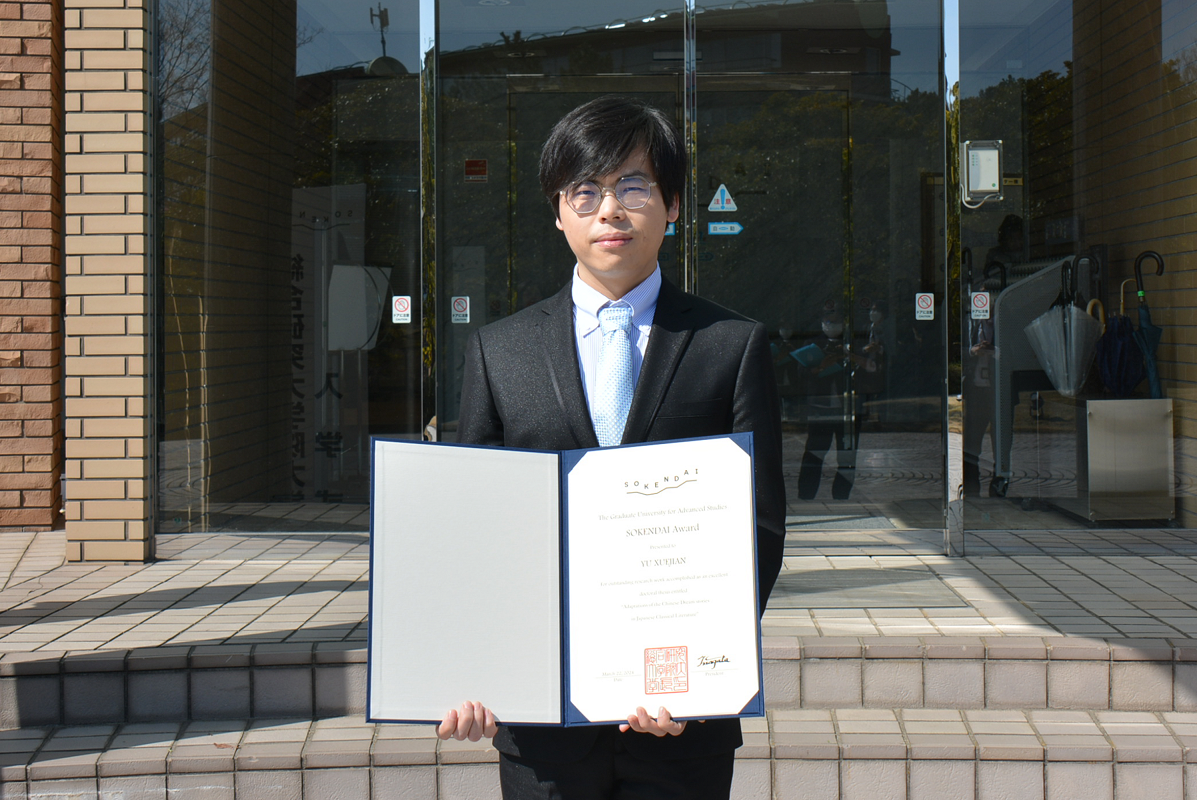
The Japanese Studies Program, which I completed, served as a platform for advancing Japanese studies through an international and interdisciplinary approach, bridging the distinct realms of the humanities, social sciences, and natural sciences. In this program, by taking courses such as "Theory and Methodology in Japanese Studies" and "Interdisciplinary Research", I was able to solidly establish a foundation in the theories and methodologies of Japanese studies. Furthermore, by actively participating in various programs, including collaborative research projects, comprehensive lectures, and Thursday seminars, I deepened my connections with an international network of researchers, which brought new perspectives and inspiration to my research. This program can be considered an ideal learning environment for researchers aiming to explore the frontiers of Japanese studies.
School of Cultural and Social Studies, Department of Japanese Studies
Graduate of March 2024
International Research Center for Japanese Studies
Winner of the 12th SOKENDAI Award
NAKAYAMA Tomonari, School of Physical Sciences, Department of Fusion Science
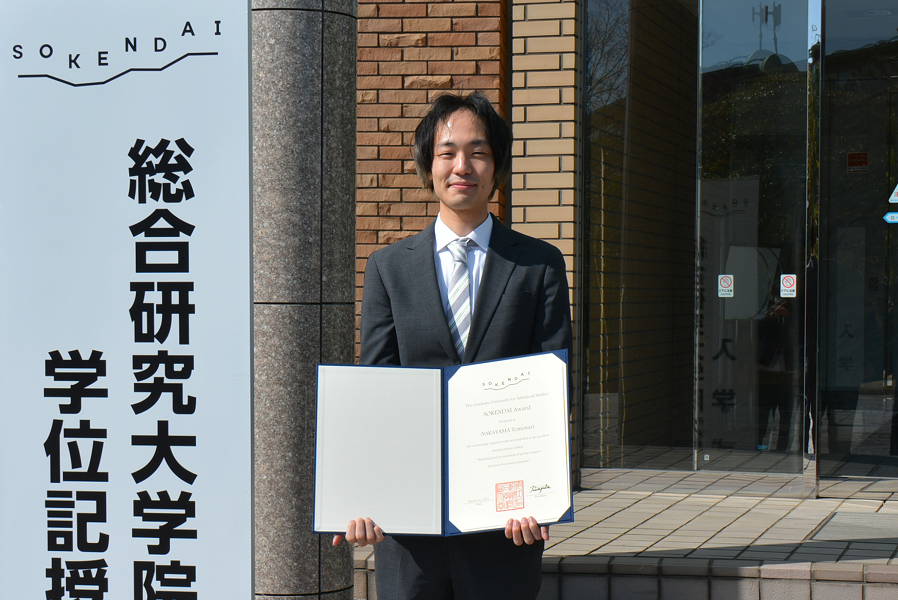
The Department of Fusion Science is located in the National Institute for Fusion Science in Toki City. In this course, a broad range of research is available, mainly on plasma physics and fusion science, including plasma experiments, fusion reactor materials, superconductivity, and theory and simulation. SOKENDAI also has a large number of researchers enrolled. This allows you to do research according to your own interests and to actively discuss your research with a variety of researchers. An extensive research support system is well developed, and I was able to join an international academic conference with the support of the SOKENDAI Student Dispatch Program. In this way, SOKENDAI is a place with a lot of freedom, and it is a good atmosphere for those who want to pursue research independently.
School of Physical Sciences, Department of Fusion Science
Graduate of March 2024
National Institute for Fusion Science
Winner of The 12th SOKENDAI Award
KAWASHIMA Takahiro, School of Multidisciplinary Sciences, Department of Statistical Science
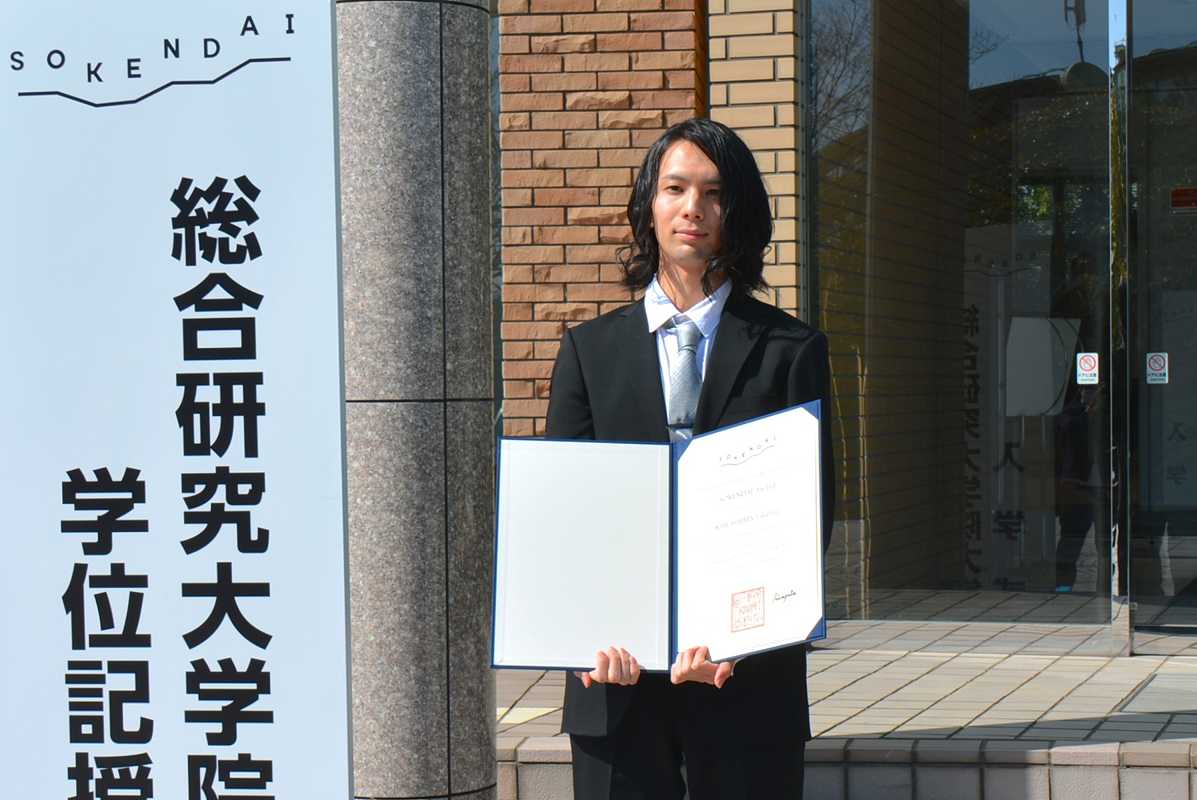
I entered the Department of Statistical Science (now Statistical Science Program), at the Institute of Statistical Mathematics in April 2021 and obtained my Ph.D. degree. At SOKENDAI, which does not have undergraduate organizations and operates on small-scale programs, you may worry about limited opportunities for honing your capability as a researcher with peers. However, the reality is quite the opposite. Each institute, serving as a Inter-University Research Institute Corporation, plays a pivotal role as a hub for its research field. This facilitates many opportunities for students and researchers both inside and outside the institute to participate in research meetings and seminars. The closeness to faculty members from different labs allows for equal discussions and extensive feedback. Why not aim for a unique degree experience at SOKENDAI?
School of Multidisciplinary Sciences, Department of Statistical Science
Graduate of March 2024
The Institute of Statistical Mathematics
Winner of the 12th SOKENDAI Award
NISHIMURA Ruka, School of Life Science, Department of Genetics
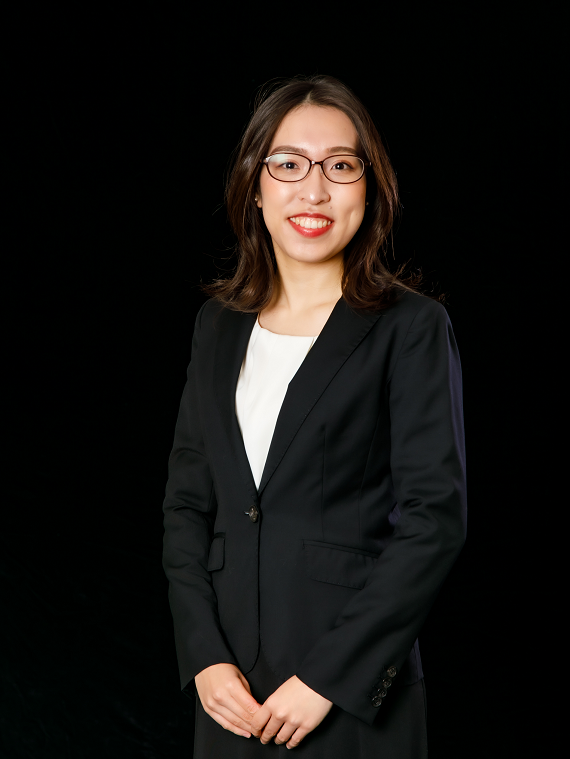
Throughout my doctoral studies, I was enrolled in the Department of Genetics at the National Institute of Genetics in Mishima, Shizuoka. Our institute actively conducts both experimental and computational research in genetics. A notable feature is our seamless collaboration with researchers from diverse labs, which greatly enhances our research capabilities. We receive invaluable guidance from professors across various disciplines and regularly attend seminars covering cutting-edge research topics. This unique environment fosters continuous learning and enables us to forge connections with experts in different fields. Based on my experience, I wholeheartedly recommend our department for its role in honing research skills and facilitating interdisciplinary networking during doctoral studies.
School of Life Science, Department of Genetics
Graduate of March 2024
National Institute of Genetics
Winner of the 12th SOKENDAI Award
